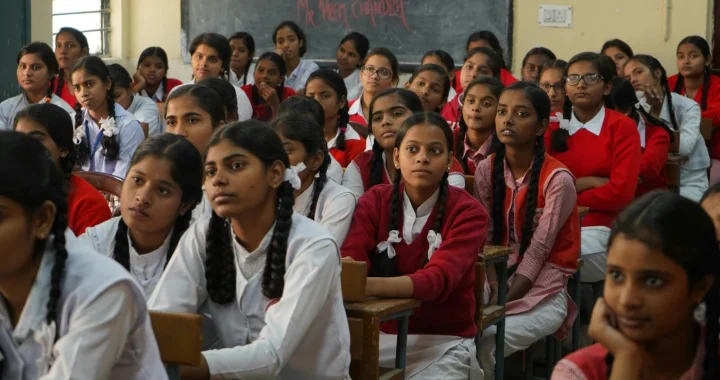SEAblings and Beyond: The Rise of Grassroots Movements Amidst Crisis

Illustration: Irhan Prabasukma.
Sustainable development hinges on the spirit of collaboration and the principle of leaving no one behind. In every point of struggle, there is an opportunity to join hands to create positive impacts. For instance, amidst economic volatility, political chaos, and rampant environmental degradation, the people of Southeast Asia are stepping up to help each other through an organic digital-based grassroots movement. From this, the moniker SEAblings has emerged to illustrate the region’s cross-border solidarity.
Separate Yet Shared Struggles
We are living in a time of crises. The cost of living has been skyrocketing, leaving people struggling to afford their most basic needs. An FAO report notes that 139 countries experienced over 25% food price inflation between 2020 and 2025, which exacerbates global food insecurity. Housing costs also increase, all against the backdrop of mass unemployment. On top of that, the looming consequences of the climate crisis have already and will continue to exacerbate these challenges.
The severity of these compounding issues calls for inclusive and effective systemic interventions. Here, good governance plays a vital role in formulating human-centered solutions. But the road to good governance is, too, marred by issues—one of which is corruption.
Systemic corruption can trigger wider socio-economic disparity, undermine sustainable development progress, and fuel political instability and social unrest. Unfortunately, this breach of public trust echoes across many countries in Southeast Asia.
In the Philippines, a massive corruption case in the government’s flood control projects is under investigation. The controversy involves 545 billion PHP (over 9.5 billion USD), “ghost projects”, corrupt politicians, and their close associates in the construction industry. Meanwhile, the Malaysian government’s decision to pass the Government Procurement Bill has been met with uproar from civil society groups due to the rushed process and lack of transparency, especially in light of the previous 1MDB mega-corruption case.
Indonesia is not an exception. Rampant corruption, democratic erosion, mass unemployment, rising living costs, and widening disparities have been polluting the lives of Indonesian citizens. These mounting frustrations came to a head in August 2025, when massive protests erupted over proposed giant housing benefits for parliament members. These benefits would bring their total monthly income to over 20 times Jakarta’s minimum wage. The protests were tainted by state violence and police brutality, with at least 10 people dying and 3,337 detained in 20 cities. This oppression of the right to freedom of opinion and expression prompted the UN OHCHR to call for dialogues to address public concerns.
SEAblings and Beyond
Despite the bleak reality, hope emerged in the form of community. The death of Affan Kurniawan, a young online motorcycle taxi driver who was run over by a police tactical vehicle in the Jakarta protest (29/8), sparked a wave of actions from Southeast Asian citizens.
On August 30th, @sighyam posted on X/Twitter about how fellow Southeast Asian citizens could support online delivery drivers in Indonesia. Essentially, people would place orders through delivery apps for food, beverages, and first aid kits from local restaurants and pharmacies in Indonesia. They would complete the payment remotely using cards or digital wallets. Then, they would tell the drivers to share the ordered items among other drivers, protesters, or their families.
What began with a single post on social media became a massive organic grassroots movement. People from across the region started sharing screenshots of their delivery orders, inviting others to do the same.
From this, the moniker ‘SEAblings’ was born to put a name to the sibling-like dynamics and solidarity among the people of Southeast Asia. Plus, the act of sharing food is an important part of cultures shared among SEAblings. The initiative eventually gained international attention, with people from outside of Southeast Asia taking part as well.
The impact was real. This movement provided support for online delivery drivers during protests. Due to school closures and work-from-home (WFH) notices, they were struggling with significantly fewer orders. Moreover, the drivers are gig workers who still lack a comprehensive social protection mechanism.
Solidarity for Progress
Grassroots and community-led initiatives often emerge in the absence of good governance. This simple, organic, yet impactful support from the SEAblings and beyond is a ray of hope we need in these trying times. It reminds us of community and what the people can do together. After all, while the act itself is about giving, the movement is about solidarity, not charity.
This show of solidarity and support is made easier by the internet. People—especially youth—have been leveraging social media spaces to raise awareness and call for actions on important issues. However, when engaging in digital-based movements, it is essential to be aware of its challenges. Despite the impression of diversity and accessibility, the digital sphere still carries the potential of reproducing social inequalities.
While more and more people are coming online these days, digital divides remain. One-third of the world is still offline, with notable lack of progress in the urban-rural gap and affordability. Furthermore, factors such as gender, ethnicity, age, levels of education, and socio-economic background and status affect how people use and are received on the internet.
As the fight for justice and human rights continues for the SEAblings and beyond, there will be more opportunities to show up for each other in solidarity. Hopefully, this sense of collective responsibility toward one another will spread, including among governments and people in power.

Co-create positive impact for people and the planet.
Amidst today’s increasingly complex global challenges, equipping yourself, team, and communities with interdisciplinary and cross-sectoral insights on sustainability-related issues and sustainable development is no longer optional — it is a strategic necessity to stay ahead and stay relevant.


 India’s Supreme Court Declared Menstrual Health and Hygiene as Fundamental Rights
India’s Supreme Court Declared Menstrual Health and Hygiene as Fundamental Rights  Impacts of E-waste Pollution on Animals and Human Health
Impacts of E-waste Pollution on Animals and Human Health  Africa’s Solar Energy Surge: Why 2025 Was a Breakthrough Year
Africa’s Solar Energy Surge: Why 2025 Was a Breakthrough Year  Agrihoods: Integrating Farms and Urban Neighborhoods into Sustainable Communities
Agrihoods: Integrating Farms and Urban Neighborhoods into Sustainable Communities  Women in Waste Management: Asia’s Circularity Runs on Women. Its Policies Still Don’t
Women in Waste Management: Asia’s Circularity Runs on Women. Its Policies Still Don’t  Embracing the Business Value of Sustainability
Embracing the Business Value of Sustainability